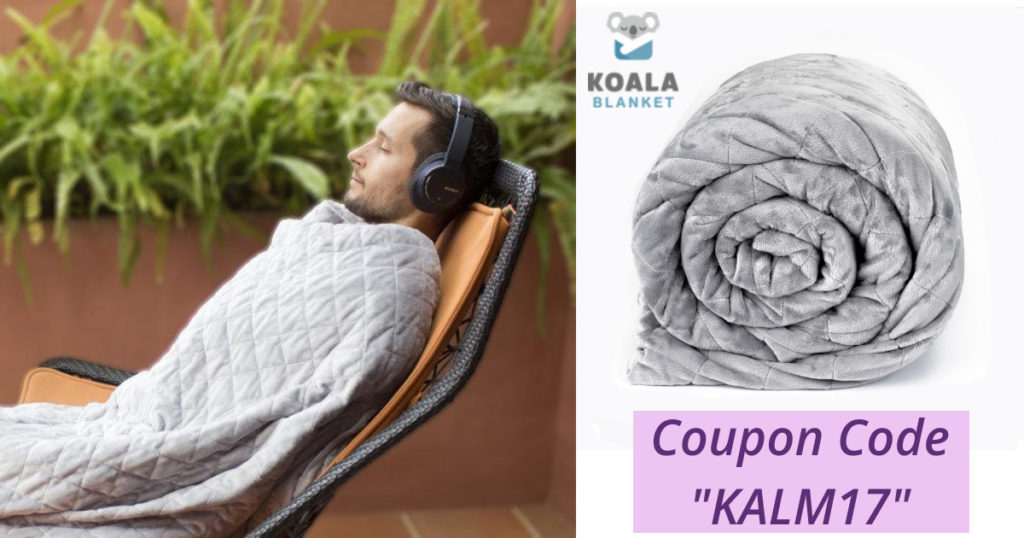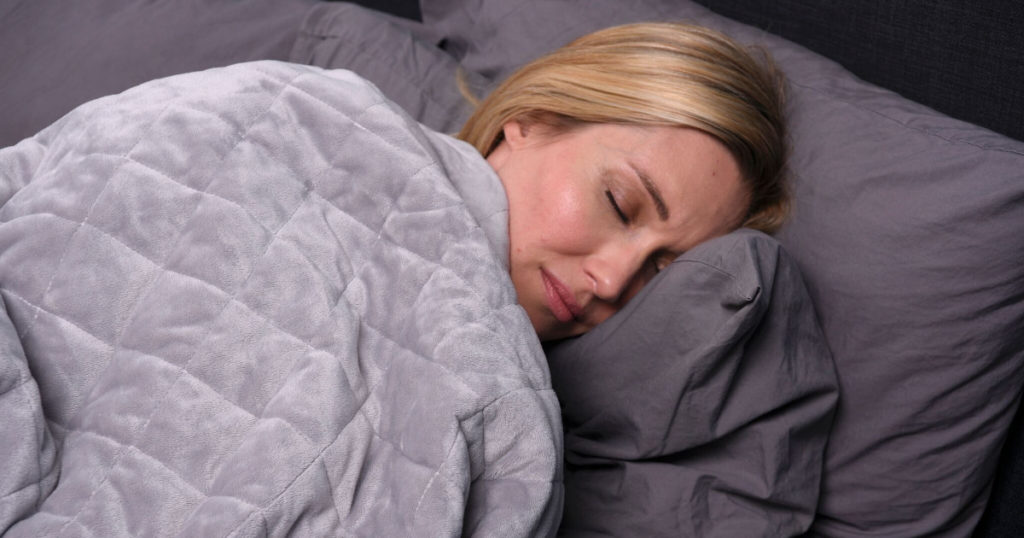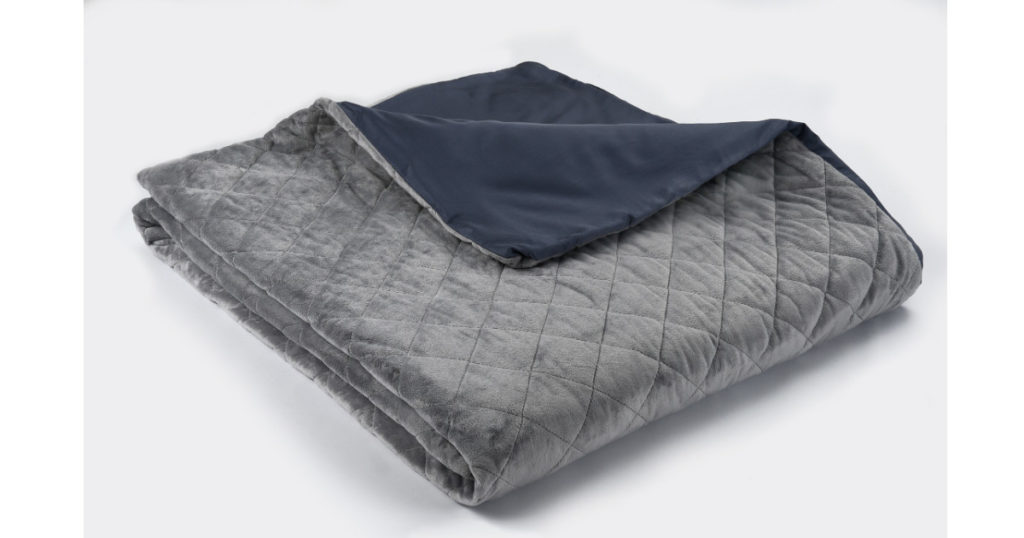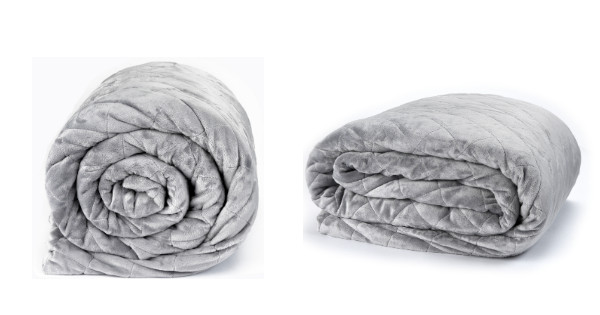The Biggest Gains-Killer
October 30, 2019
The fitness and sports supplement industry would have you believe that getting a great body is 80% diet and 20% exercise. But this thought process neglects a factor that’s just as important as diet – sleep.
Sleep deprivation, lack of sleep, bad sleep – whatever you want to call it – is the enemy of gains and the biggest enemy of RECOVERY.
When we sleep, our body recovers. It repairs itself. When we are awake, our body cannot allocate sufficient resources to repair our muscles and nervous system. It takes sleep to do this. And not just any sleep, but good sleep.
And yet, sleep is often overlooked as a critical factor in the quest to maximise gym performance, muscle gains and get a great body.
Because of this, people get overly hung up on their macros, overrated supplements and spending more time in the gym. The former and latter can assist you in achieving your goals, but sleep is the binding agent that brings them together.
A simple truth
Without adequate sleep, your body isn’t given the time it needs to recover from a workout, making it very difficult to achieve gains.
Even worse, without adequate sleep you can actually LOSE MUSCLE MASS.
A study in 2011 examined the impact of sleep time on muscle mass, and found that people who slept 5.5 hours a day had 60% less muscle mass than those who had 8.5 hours of sleep a day by the end of the study – and all were on the same diet.
This tells us sleep is not only crucial for building muscle; it is also crucial for keeping it.
But why is this? Let’s find out.
How sleep affects gains
Sleep impacts muscle growth in a number of different ways. The three most important you need to know about are protein synthesis, glucose, and hormones.
Protein Synthesis
The fitness industry is big on protein, and for good reason – protein builds muscle. But it does it far more effectively when we sleep.
During sleep, greater amino acid availability promotes muscle protein synthesis, improving our body’s use of protein which enhances recovery.
When we sleep less, our body has a narrower time window to work with. This is why sleeping less equals less gains from a protein standpoint. Our body simply cannot use up all the protein it has without adequate sleep.
Glucose
Glucose is the only sugar our body uses for energy. It is stored in little bundles called glycogen in our muscles.
Glycogen is our primary source of fuel during exercise. Low glycogen levels decrease our efficiency in the gym, and therefore our ability to gain strength and muscle.
When we sleep, our body replenishes these glycogen stores in our muscles and organs, giving us the energy we need to kill it at the gym.
Without enough sleep, our body becomes less efficient at replenishing glycogen, because sleep promotes glycogen accumulation.
The way to think of this is when we are awake, we use up our glycogen stores. And when we sleep, we replenish them. It is only logical to come to the conclusion that without good sleep, our body is hindered in the replenishment cycle.
Hormones
Sleep is known to increase the production and secretion of a variety of hormones which are essential for muscle recovery and fat metabolism.
Insulin (peptide hormone)
Sleep negatively affects insulin activity with the effect of decreasing glucose tolerance and reducing our body’s storage and absorption of glycogen.
As we covered in our glucose section above, glycogen is our primary source of fuel during exercise. But without insulin, we cannot regulate it effectively. The two elements go hand-in hand. One cannot exist in a good state without the other.
Testosterone (steroid hormone)
Testosterone is responsible for the repair of muscle proteins damaged during exercise, and for the re-synthesis of protein stores. It is essential to build muscle.
When we sleep, testosterone levels rise. And when we wake, our testosterone levels decrease. Therefore, good sleep is essential to allow testosterone levels to rise, so our body can repair muscle proteins following a workout.
Human growth hormone (anabolic hormone)
The human growth hormone (HGH for short) stimulates cellular growth, muscle protein synthesis and promotes fat metabolization.
As much as 75% of this hormone is produced and released when we sleep. Specifically, during the REM cycles of sleep (or deep sleep). Therefore, good sleep is essential for this hormone to exist and work as intended.
Epinephrine (amine hormone)
Epinephrine helps regulate the body during strenuous cardiovascular exercise by elevating cardiac output and increasing blood sugar levels.
Inadequate sleep can affect the adrenal medulla, which is responsible for the production, synthesis and release of epinephrine. Abrupt shifts in sleep have also been found to induce a disruption in amine hormone rhythm.
Bad sleep = BAD GAINS
Hormones are a big deal because they enable protein synthesis and energy production to happen in the first place. A lack of these hormones can also translate to burnout, lack of motivation in the gym and over-training to compensate.
The bottom line is good sleep is essential to build muscle. Bad sleep equals bad gains because our body cannot synthesis enough protein, create enough energy, or create the hormones it needs to run efficiently.
How sleep affects weight loss and metabolism
It isn’t just muscle gains where good sleep is essential – weight loss and metabolism are directly affected by quality of sleep too.
Without adequate sleep, the following things happen:
Your metabolism slows down
When you don’t get enough sleep, your body cannot create and store enough glycogen, so it slows down your metabolism to conserve the energy (food) you give it.
This means your body will burn fewer calories at rest and during activity, which is bad for weight loss. It also means you will have to eat less to avoid putting on weight.
Hormones make you hungry
With just a small amount of sleep deprivation, your body sees a 15% decrease in leptin production (the hormone that tells you to stop eating) and a 20% increase in ghrelin (the hormone that tells you you’re hungry).
You want to eat more food than normal
When you become sleep deprived, your sympathetic central nervous system’s ability to regulate metabolic functions becomes impaired. It begins to actively seek out sources of energy, which often leads to bad diet choices.
Your body produces too much cortisol
Sleep deprivation increases levels of cortisol in the blood (the body’s primary stress hormone). Cortisol regulates our sleep-wake cycle and manages how our body uses energy, fats and proteins. It is therefore an essential component of weight loss.
Too much cortisol is known to cause muscle weakness, fatigue, impaired brain function, changes in mood and rapid weight gain in the abdomen.
Bad sleep = FAT GAIN
Add all these factors together, and you have a perfect recipe for FAT GAIN, not fat loss. Why? Because bad sleep causes your metabolism to slow down which adversely affects fat loss, reduces your energy levels and stunts recovery.
The bottom line is your body needs good sleep for a fast metabolism. If deprived of sleep, your body will lower its metabolism and burn fewer calories. You will also feel hungrier during the day and be prone to snacking on sugary foods as your body tries to compensate for a lack of energy. Neither are good for weight loss.
Are you compensating with supplements?
The supplement industry is expected to be worth $194.63 billion in the US alone by 2025, and fuelling it is people who want gains.
Protein powders, muscle gainers, BCAAs and things of that ilk are very useful for boosting protein intake, so they can have a place in your diet, but you should be sceptical of other things like fat burners and testosterone boosters. These are often full of useless ingredients that can cause a multitude of side effects.
Compensating for a lack of sleep
Whether you want to lose weight or build muscle, a good night’s sleep is essential for all the reasons highlighted above.
Unfortunately, however, many people struggle to sleep, and they don’t realise the effect this is having on their progress.
This can lead to people putting faith in supplements to compensate for poor sleep – despite not fully understanding what they are putting in their body.
And we’re not talking about sleeping pills and sleeping aids – we’re talking about supplements that are designed to enhance performance in the gym. These are often taken in the hope of counteracting poor sleep, so gains are still possible.
The dangers of shady supplements
Some supplements, like protein powder, fish oils, arginine, carnitine, EEA, creatine and BCAA are proven, safe and absolutely fine to take.
But others, like those containing bitter orange, chaparral, kava, androstenedione and 1,3-dimethylamylamine, or DMAA, are EXTREMELY DANGEROUS. Some supplements are also sold illegally with false ingredient lists.
Some supplements even if they are not dangerous can also make sleep patterns even worse and cause the immune system to work on overdrive. Many pre-workout supplements are well documented for doing this.
The danger here is putting something into your body that makes you poorly, either immediately or over a period of time. The double danger is not knowing what you are putting into your body in the first place. So, if you do become ill, how would you be able to tell the doctor what you have taken?
Our advice is if you must use supplements, stick to the well-known ones and ALWAYS purchase them from a reputable seller and a reputable brand. You should also consult your doctor before you start taking them.
Lastly, supplements should never be taken to counteract the effects of poor sleep. It’s a false economy. If you suffer from poor sleep, you need to target the source – not the effect.
Proven sleep solutions
Sleep solutions include a weighted blanket, which is proven to help with insomnia; melatonin tablets, which boost the hormone melatonin, which signals to your brain that it’s time to sleep; lavender oil, which has been shown to improve sleep; and white noise, which has also been shown to improve sleep in adults.
Most people never realise this, but THE KEY TO GAINS IS SLEEP. Diet and exercise are keys too, but it is sleep which binds them together.
Here’s the bottom line – a good diet and exercise are but two ingredients of a three-ingredient cake. Sleep is the third ingredient. Because of this, the 80% diet and 20% exercise rule really doesn’t hold weight. A 40% diet, 40% sleep and 20% exercise rule is a more complete rule for gains. So, why not try it? The sleeping aids highlighted above are proven. Give them a go. You’ve nothing to lose.
More About Koala-Testimonials
The goal of this UK based company, was to create a product that solved the issue of bead spillage, ripping, and uneven weight distribution – issues that other weighted blankets struggled with. After 18 months of development, they produced a product that overcame these struggles, and still provided an affordable price for their customers.
This blanket is made out of organic cotton and the cover is two sided. It has smaller pockets to keep the weighted beads in place. They also use extra strong thread and double stitching to ensure the blanket doesn’t break and spill its beads. This is a big complaint with other weighted blankets so it is nice to see this feature.
Weighted Blanket Benefits
Weighted blankets help people sleep better in the following ways:
Reduces cortisol levels
Grounding reduces the production of cortisol, a steroid hormone triggered by stressful situations. While cortisol is not necessarily bad, nighttime cortisol production can counteract the production of melatonin, which can in turn have a negative effect on sleep quality.
Helps produce more melatonin
Natural light triggers melatonin, causing us to feel more tired at night and more wakeful the next morning. People with insomnia tend to produce less melatonin, leading to problems with sleep onset and/or sleep maintenance. As a result, those who use weighted blankets for insomnia and other disorders linked to low melatonin production often experience notable sleep improvements.
Triggers happiness hormones
Grounding triggers the release of serotonin, and other ‘happiness hormones’ that calm the nervous system and make people feel more relaxed.
Reduces sleepwalking episodes
Interrupted or inefficient sleep can cause in adults and children. Weighted blankets cause people to feel more relaxed before falling asleep, which often leads to deeper sleep and more restful nights. As a result, weighted blankets can be very helpful for sleepwalkers – particularly toddlers and young children.
Even More Weighted Blanket Benefits
In addition to benefits for sleepers, weighted blankets can also alleviate stress and anxiety for many. Dentists often provide weighted blankets to patients in order to alleviate their stress before drilling.
Physicians have also noted that adults and children with certain disorders and medical conditions may benefit from using a weighted blanket for anxiety. These include:
Autism spectrum disorder (ASD)
A weighted blanket for autism can be effective for several reasons, particularly among children with ASD. Individuals with ASD often have below-average serotonin and melatonin levels, which can lead to sleep difficulties. Additionally, children with ASD tend to experience anxiety, especially at night.
Attention-deficit/hyperactivity disorder (ADHD)
Poor academic performance is a common issue among children with ADHD, and this problem may be compounded by lack of restful sleep. When used correctly, a weighted blanket for ADHD can not only improve the child’s sleep but also sharpen their focusing abilities in the classroom and boost their grades.
Important Tips for Weighted Blanket Shoppers
When shopping for a weighted blanket and comparing different brands and models, here are a few factors to keep in mind:
What is your weighted blanket budget?
Keep in mind that most weighted blankets cost at least £100 when sold through companies. Private sellers on sites like Etsy may price their weighted blankets lower, but they do not come with warranties and the quality is usually lower.
How much do you weigh?
Use your body weight to calculate the most suitable weight for your blanket. Surveys have found that people generally feel most comfortable under a blanket that weighs 7% to 10% as much as they do, but testing out different models is considered the best way to find the right fit. Also keep weight loss/gain in mind, as the most suitable blanket may change if your own weight fluctuates.
Do you have a medical or psychological condition that may lead to discomfort under a weighted blanket?
Certain individuals may feel less comfortable under weighted blankets, such as people with claustrophobia, women who are going through menopause, and people with respiratory and/or circulatory issues.
What is your preferred blanket size?
Some sleepers like blankets with minimal coverage while others enjoy wrapping themselves in longer, wider blankets. Keep in mind that weighted blanket size is usually tied to weight; the less a blanket weighs, the narrower and shorter it will be. You may have to compromise your width and length preferences in order to find a blanket that weighs the right amount.
Do you sleep warm?
Many people sleep excessively hot or warm, either due to their own body temperature regulation or the composition of their mattress (foam and latex sleep hotter than springs). Weighted blankets with covers made of natural fibers like cotton and wool tend to sleep cooler than synthetic fabrics like polyester. For this reason, people who sleep warm are urged to pick a weighted blanket with a natural fiber cover.
Does the blanket come with a cover?
Be sure to scope out the product specs. In some cases, weighted blanket covers are sold separately from the blankets themselves.










